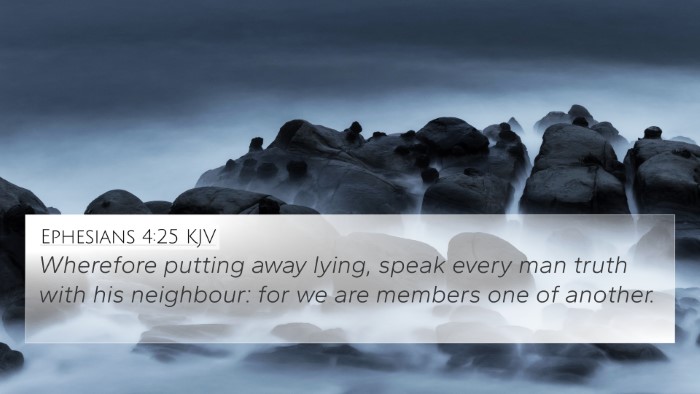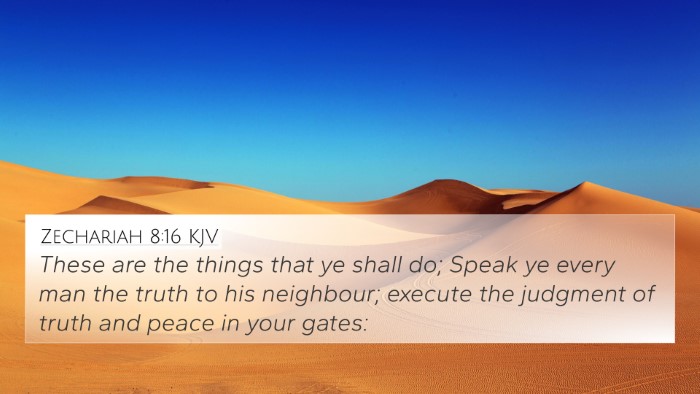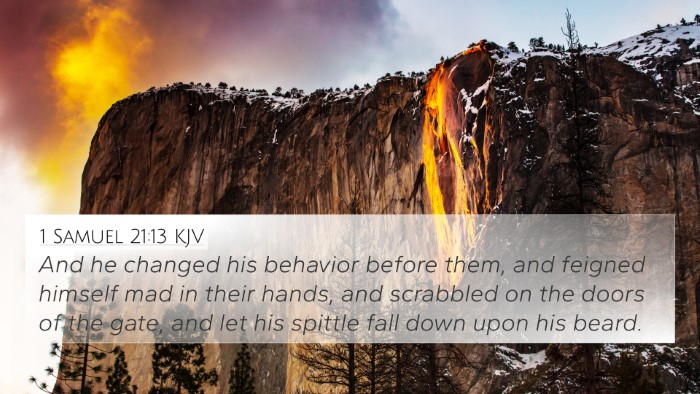Understanding Genesis 27:24
Verse: “And he said, Art thou my very son Esau? And he said, I am.” (Genesis 27:24)
This verse is part of the narrative of Isaac's blessing to his sons, particularly focusing on the deception that occurs in the story. The inquiry of Isaac, “Art thou my very son Esau?” reflects a moment of tense uncertainty regarding identity, which highlights themes of truth, deception, and familial dynamics.
Contextual Analysis
To fully grasp Genesis 27:24, it is essential to consider its context within the larger narrative of Genesis. The blessing Isaac intended to bestow on Esau was crucial for the continuation of the covenant promise. However, Jacob's deception, facilitated by Rebekah's counsel, is central to the text’s message.
Key Themes and Insights
- Deception and Identity: Jacob’s response, “I am,” indicates a deeper exploration of identity. It raises questions about authenticity and the moral implications of deception. Matthew Henry notes that this moment illustrates the lengths to which individuals might go to secure personal interests.
- Divine Sovereignty: The events surrounding Isaac's blessing are frequently interpreted as demonstrating God's overarching plan, as highlighted in the writings of Albert Barnes. Despite human deceit, God's purposes are ultimately accomplished.
- Familial Conflict: The tensions within Isaac’s family are palpable. Adam Clarke points out that the relationships between the characters show how familial love and rivalry play into the decisions made, influencing the trajectory of biblical history.
Cross-references and Related Verses
Genesis 27:24 connects with several other verses that offer a broader understanding and thematic resonance:
- Genesis 25:23: “And the Lord said unto her, Two nations are in thy womb, and two manner of people shall be separated from thy bowels...” – this verse sets the stage for the ongoing conflict between Jacob and Esau.
- Hebrews 12:16-17: “Lest there be any fornicator, or profane person, as Esau, who for one morsel of meat sold his birthright.” – this referencing Esau emphasizes the undervalue of his birthright in the context of spiritual inheritance.
- Romans 9:13: “As it is written, Jacob have I loved, but Esau have I hated.” – illustrating God's choice that plays out through this family saga.
- Genesis 27:18: “And he came unto his father, and said, My father: and he said, Here am I; who art thou, my son?” – an earlier response in the passage that highlights the deception unfolding.
- Genesis 12:3: “And I will bless them that bless thee, and curse him that curseth thee...” – the overarching covenant promise that frames the blessing theme.
- 1 Peter 2:9: “But ye are a chosen generation, a royal priesthood, an holy nation...” – underscores the theme of chosen identity connected to the lineage of Jacob.
- Malachi 1:2-3: “I have loved you, saith the Lord. Yet ye say, Wherein hast thou loved us? Was not Esau Jacob's brother? saith the Lord: yet I loved Jacob, and I hated Esau..." – a reference that echoes God's selective love and purpose.
Thematic Bible Verse Connections
When analyzing Genesis 27:24 with other scriptures, we observe recurring themes of identity, covenant, and divine sovereignty. Insights from Matthew Henry discuss how these themes reflect God's intentions in history. Connections between Bible verses can highlight the intricate web of biblical theology. By drawing parallels and contrasts, one can gain deeper insight into these narratives.
Tools for Bible Cross-referencing
To further explore such connections, various resources can be instrumental:
- Bible concordances help in tracking themes throughout the scriptures.
- Cross-reference Bible guides facilitate deeper understanding of intertextual relationships.
- Tools for comparing Bible verses enhance scholarly study and personal reflection.
Conclusion
Genesis 27:24 is a rich verse laden with meaning pertaining to identity and the complexities of human relationships. Through both the immediate context and broader biblical connections, this verse invites readers to reflect on the consequences of deception and the nature of divine purpose. The interconnectedness of biblical themes enhances our understanding and illustrates the importance of comparative Bible verse analysis.















